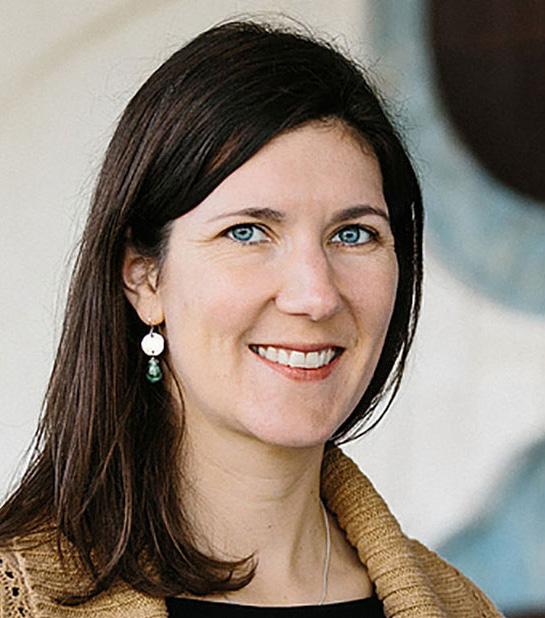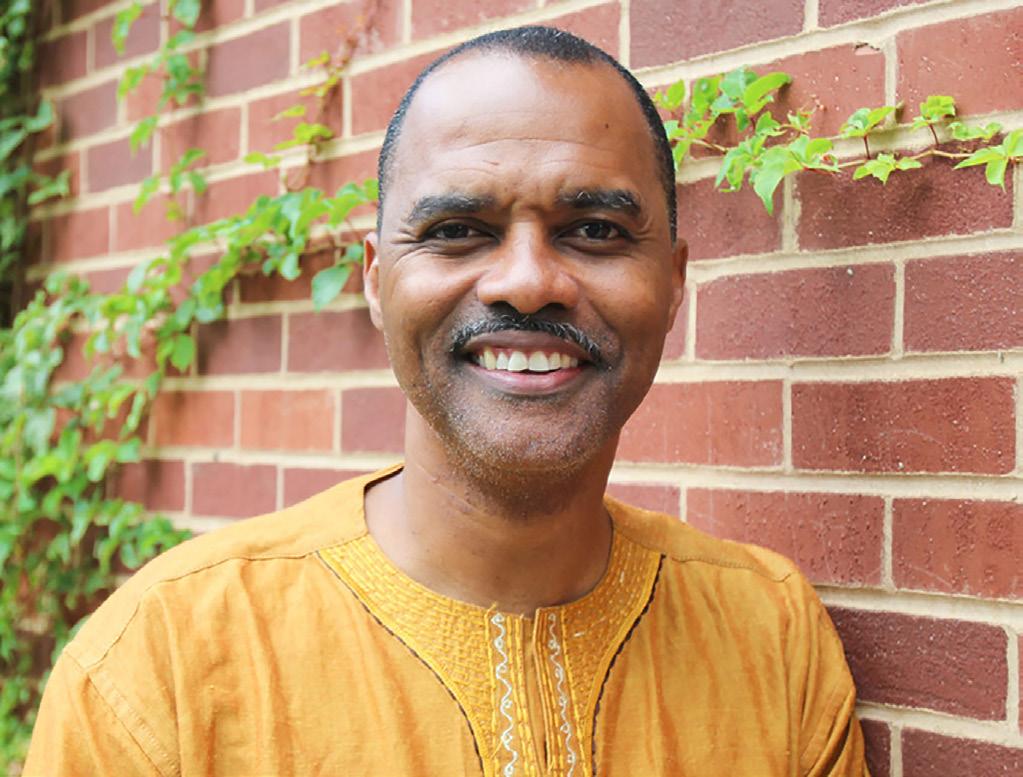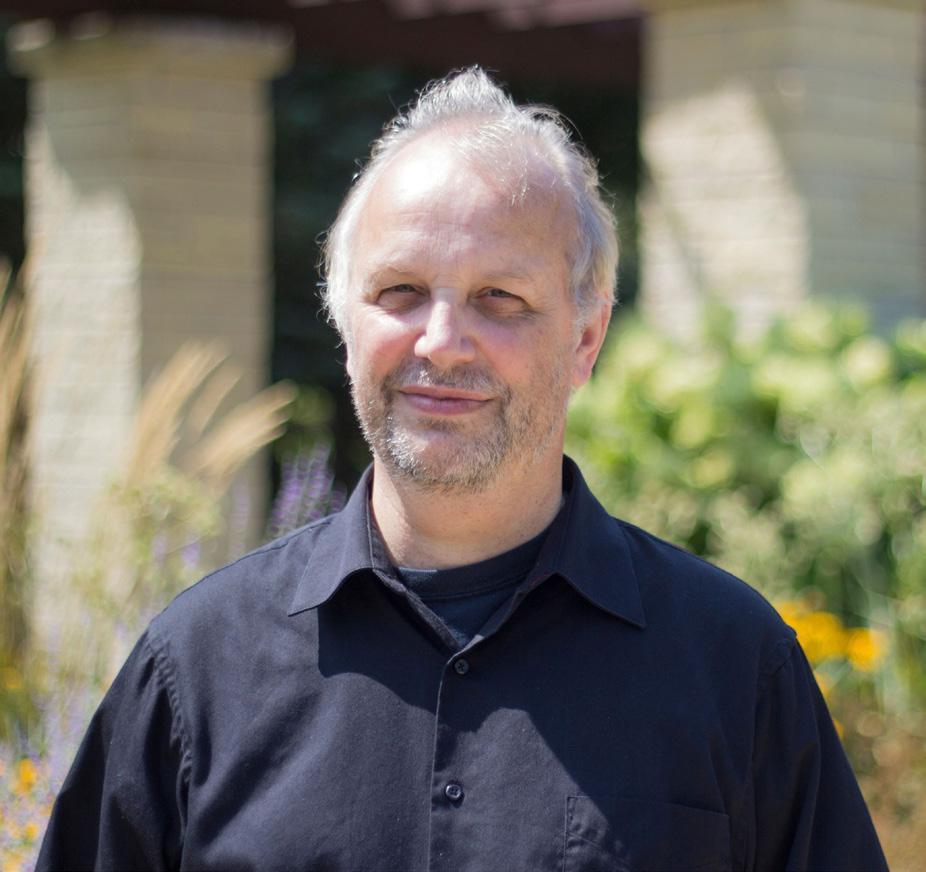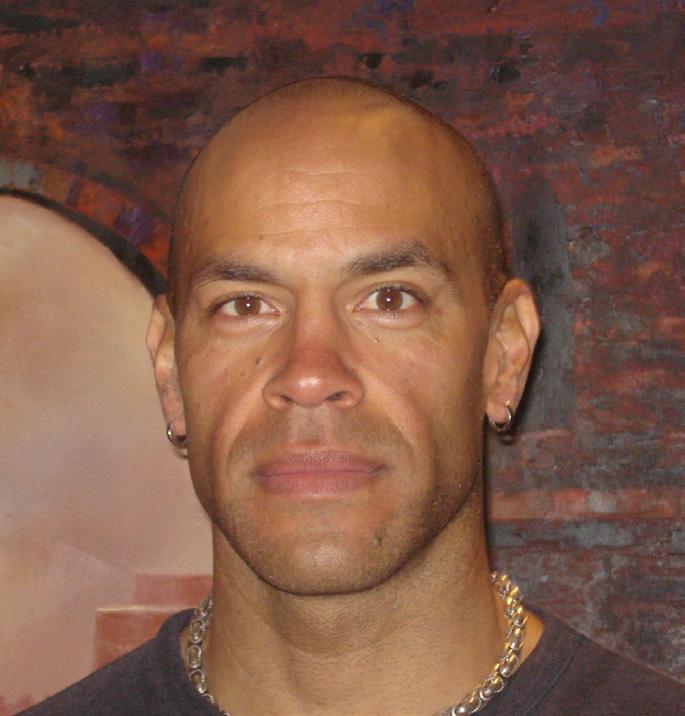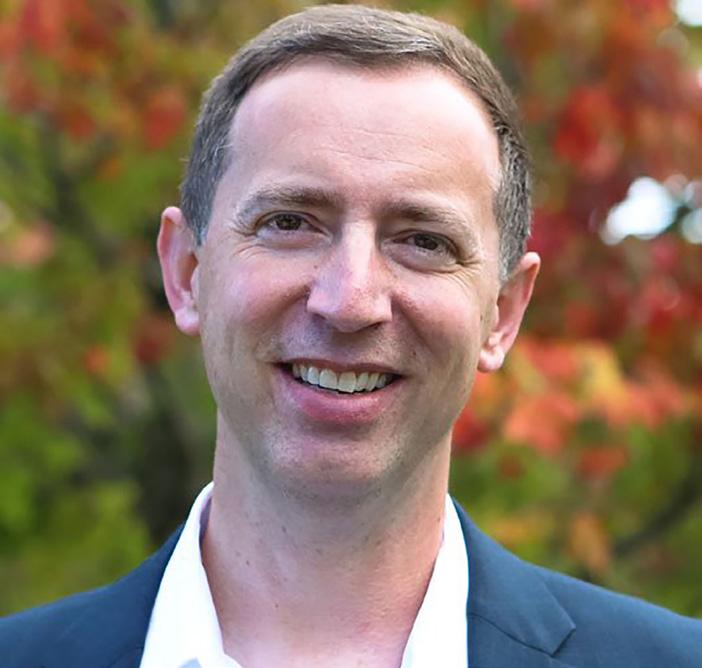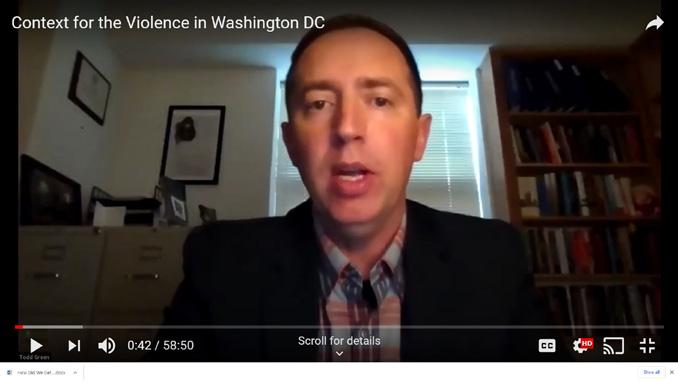
8 minute read
Can't Help Falling in Love (April 28, 2021) Nancy K. Barry
from Agora Spring 2021
Can't Help Falling in Love
by NANCY K. BARRY, Professor of English
In my thirty-something years at Luther College, I have spoken in chapel almost as many times, but none of those sermons have inspired so much befuddlement, so much anxiety as this one, my last. Well, maybe my first one did, thirty years ago. It was in January of 1991, and I was giving a sermon during the week of Epiphany. I spent two days writing and working through my thoughts about gift-giving, only to be seized suddenly the night before by a deep fear that what I had to say had absolutely no theological basis and even less moral direction. It was as if all the ghosts from previous years of faith at Luther College—when the service was required for all students and the only people who spoke in chapel were campus pastors and members of the Religion and Philosophy departments—were somehow floating through the air and landing at my doorstep, pressuring me to measure my own delicate journey toward the web of my soul against some giant, monolithic, centuries-old doctrine of Lutheranism. What, I wondered, could I possibly say that would make sense? My uneasiness with my first sermon was based in part on my ambivalence toward the whole enterprise of chapel. When I came to Luther thirty years ago, I was more curious than anything else about the structure, this dedicated time three days a week to gather together and suspend ordinary labor. So I decided I would “give it a try” as a new community member. I thought I would go a couple days each week, to see what it was about. Within months, I was hooked, on the gentle warp and weft of stories, testimonials, scripture reflections—the presence of so many voices within our community telling the softly-woven or the hard-fought faith stories of their lives. It has been a privilege for me all these years to witness so many deep articulations of faith and soul. The practice has been life-giving to me, and in the spirit of telling one more story, I want to reflect with you today on an event that showed me another example of witness at Luther College. You might say it was for me the most important chapel service I ever attended, but it wasn’t a chapel at all—it was a service project gathering, in 2015, during an off-campus January term course in South Africa. But it was a moment in which I felt so uplifted by the grace of Luther students, I have never forgotten it. I was teaching the course with my colleague Martin Klammer, and for one evening in Johannesburg we had organized a dinner and gathering for a special group of children who were housed at an orphanage known as “Children of Fire.” As their name suggests, they were all survivors of terrible fires, and their bodies bore the impact of those burns in dramatic, quite visible ways. Because so many homes in South Africa don’t have safe vehicles for heating or cooking, people use kerosine lamps and oil-burning heaters, and the resulting fires can often be disastrous, especially for small children. I was worried about how it would go that night, because Martin, who had worked with the children during his previous year on sabbatical in South Africa, had alerted all of us that several of the children were severely disfigured by their burns. I myself have a deep, primal fear of fire within me, and I wondered how I would feel upon seeing such vulnerable children—their arms and legs misshapen; their faces disfigured; their hands or feet rounded into stumps. I wondered, in all honesty, if I had the stomach for it. Like all those in need of grace, I was worried about me, myself, and I—a safe white woman’s fear that it was all going to be unsettling or uncomfortable. But then, I was rescued by Luther students, who embraced the children, and spent the long evening playing games with them, singing songs, letting one another into the not-so-fearful places of the heart. It was as if we were a microcosm of the world on that small backyard patio: the young, the old; the black, the white; South Africa and North America; the lucky and the unlucky; some with their scars so visible they could make you wince; some with their scars so hidden no one in the world would know the silent, secret pain carried inside. Throughout the evening, I was called to reach outside of myself, to join the students in simply accepting these children and letting ourselves connect. It felt like a moment of grace, a deep intermingling of life both tragic and healing, a long-forgotten understanding of what it means to be human. The best sermon a person could write or hear. Late into nightfall, we ended with a spontaneous outpouring of songs, from the children and the Luther students. And rather than any hymn that we might have sung, the first tune that was shared that night won my heart and made me feel closer to Luther students
APRIL 28, 2021
Nancy K. Barry
than I ever had before. I shall always remember how a soprano named Genevieve (from Nordic Choir no less) began to sing that old Elvis Presley song: “Wise men say, only fools rush in. But I can’t help falling in love with you.” That has become my refrain, for that night, and for all the mornings I’ve spent in chapel, throughout these thirty years. For every sermon, every prayer, every anthem sung, that is what it has meant: a process of falling in love, of opening up my heart, of saying grace, of saying yes, of saying thank you. They may have been burned in South Africa; they have been choked to death in Minneapolis; they have been shot to death in Louisville, but they are—all of them-our children, our family. That is why I have come to chapel all these years—to hear the word made real to us, to hear the deeply woven threads that bind us to other people, to feel for just an instant, the presence of divinity nudging our souls toward something bigger, something that will burn into our souls and connect us to other human beings. Last night, as I was preparing this, I thought, just like a good Lutheran, But what about scripture? Where is your SCRIPTURE?! Surely, Nancy there are some inklings from God to show the link between you and the ancient word. But all I could remember was the Gospel of John, when Jesus tells his disciples: “I will not leave you orphans; I will come to you. A little while longer and the world will see Me no more, but you will see Me. Because I live, you will live also. At that day you will know that I am in My Father, and you in Me, and I in you.” Those words, then as now, are hardly magic, but they still inspire us to believe there is life beyond life, with the presence of a God who offers that to us, provided our faith is willing to admit it. “I am in my Father. And you in me. . . and I in you.” That is the lesson that chapel services have extended to me all these years, particularly on days when it felt like a lot of trouble to walk over to the CFL, or when my mind was distracted by small fears and lesser calamities. But then I would get there, show up, and all I had to do was pay attention. Show up. Pay attention. Listen to the word of God somehow become the word of life. I can’t help falling in love with you. I’m sure you are all assuming that this group of select sopranos and altos from Nordic Choir are going to sing exactly that, but I’ve asked them to do another song I’ve always wanted to hear in chapel. It’s called “I Have a Million Nightingales” and many times before I’ve spoken in chapel, I’ve sung it to myself, so I thought it was only fair to let you hear it after all these years. It is a canon round, and its words are simple: “I have a million nightingales on the branches of my heart.” What they are calling for is not so much love, but love’s older sister, Freedom—that far-flung bird that knows no boundaries of time or place, that wants to love whoever is near or far, whoever is most in need, or most afraid. That is what we are singing for, within the chapel and beyond its walls. Freedom: from ourselves; from the terrible, tragic weight of a world on fire; freedom toward whatever and whoever we are falling in love with, especially when we cannot help it.
Find the current issue and back issues of Agora online

You can read the current issue of Agora online, and you can also find and search all back issues by going to our webpage: www. luther.edu/paideia/agora.
Changing your address? Want to stop receiving Agora?
If you do, please email or write us. Contact Agora at agora@luther. edu, or write Agora, Main 126, Luther College, 700 College Dr., Decorah, IA 52101.
The image at left illustrated early issues of Agora. The journal was established by the Paideia Program, and paideia translates as education. The image shows a teacher with his tablet on his lap and stylus in his hand.


